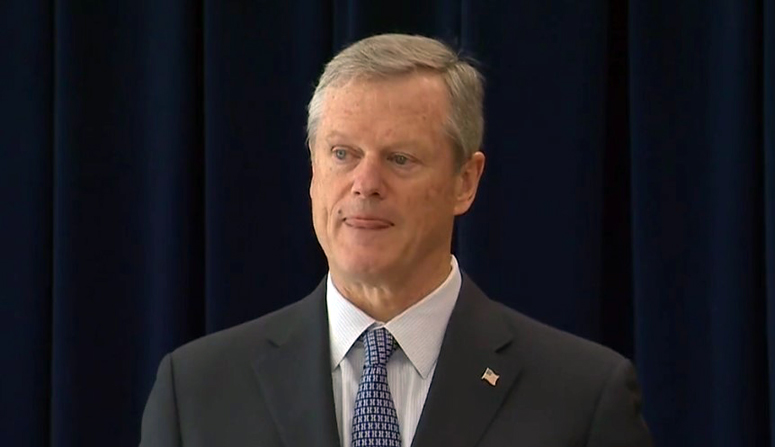Lawmakers and the governor already disagreed over how to spend the vast majority of the state’s American Rescue Plan Act money, but a key senator on Tuesday raised a new point of contention: how Gov. Charlie Baker chose to spend the tens of millions of dollars that the Legislature gave him control of.
Lawmakers left Baker and his administration $200 million of the state’s $5.3 billion ARPA sum to allocate and the governor announced Monday that he was putting $186 million of that towards financially distressed hospitals, human service worker rate increases, inpatient psychiatric care and workforce development.
Senate Ways and Means Chairman Michael Rodrigues told the governor and administration officials Tuesday that “clearly, the spending of that money is not authorized” by the law Baker signed to sweep most of the ARPA sum into an account controlled by the Legislature.
“It was the intent of the Legislature that that $200 million was, as we would say, ‘break glass in case of emergency’ funds because we are very concerned about what we are hearing from public health officials, not only here in Massachusetts but around the country, that this new Delta variant is very aggressive, is much more contagious, than the prior Corona-19 virus,” Rodrigues told the governor during the Legislature’s first hearing on ARPA spending decisions.
The Westport Democrat cited the law that swept the ARPA award into a segregated fund and left Baker with $200 million.
“I’ll read it so everyone is very clear on what it says so there’s no allegations of misinterpreting,” he said. “It says, ‘notwithstanding any general or special law to the contrary, and after the transfer under section three, the Secretary of Administration and Finance shall expend any remaining funds not subject to the transfer under section three,’ — i.e. the $200 million — ‘to protect against emergency public health threats, or to support new, heightened or emergency public health response efforts against the 2019 novel Coronavirus and variants thereof.’ “
The governor told Rodrigues that no one in his administration thought they were overstepping their bounds and felt the investments announced Monday, especially those dealing with addiction treatment, hospital finances and the human services workforce, addressed public health issues.
He also said that he does not expect Massachusetts to have any trouble obtaining personal protective equipment or federal money should it be needed to address another surge in COVID-19 cases.
“The short story to your question, Mr. chairman, is there are significant federal resources that are different than the ones we’re talking about today that are available to support many of the elements of the programming that we use and continue to use to support folks who are dealing with COVID and especially dealing with COVID in congregate care settings,” Baker said.
After Administration and Finance Secretary Michael Heffernan testified, Rodrigues renewed his line of questioning around the governor’s $186 million in announced spending.
“I’m glad the governor is confident that we’re not going to need any emergency funds going forward to deal with, whether it’s the Delta variant or any other variants that might show up over the ensuing few months of this year,” he said. “I just am concerned that when the Legislature is explicit in statute, in law, of how we would mandate that funds be spent that those mandates be followed … and it’s pretty clear to me.”
Heffernan explained that his office based its interpretation of the law on “very similar language” that was included in a supplemental budget bill last year that laid out “a broad array” of health priorities.
“So we interpreted with that similar broad stroke for the ARPA funds,” the secretary said. “And we can discuss that offline, but that was what our interpretation was, we were not trying to be off the reservation.”
Rep. Aaron Michlewitz, chairman of the House Ways and Means Committee, said he wanted to echo Rodrigues’ concerns, but did not press the issue with Baker or Heffernan.
Sen. Cindy Friedman had another issue with the way the governor spent the money that the Legislature had given him control of, specifically when it comes to the $50 million he proposed to put towards financially distressed hospitals.
“It would be really nice if we were part of your conversations because what we’re seeing may or may not be different from what you are seeing, and to be able to work collaboratively so that we’re not constantly going back to the well or saying ‘no this isn’t right,’ but that we do that together before there’s a kind of determination or announcement by the administration, I think would be really useful to our hospitals,” she said, adding that data she has seen show hospitals to be about $85 million in the red. “I want you to be part of the conversation, but I feel like we keep coming back to this point where we get information that it’s happening, but we haven’t been part of the initial conversation. So I would ask you that we become part of that so that we are really addressing the needs of those that really need our help.”
(Copyright (c) 2024 State House News Service.

